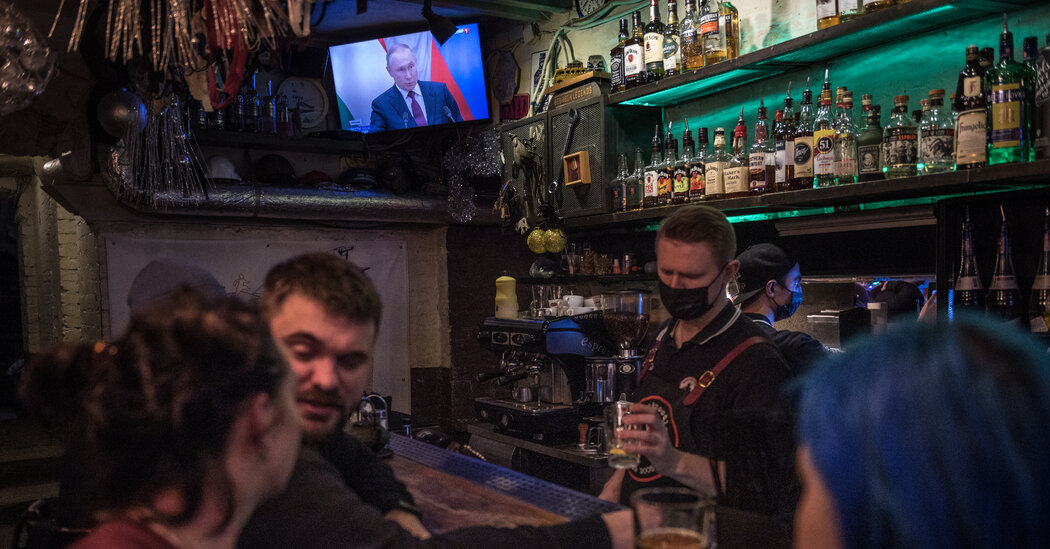Losses in Ukraine Prompt Something New on Russian TV: Debate

As Russia suffered its most humiliating defeat since the initial stage of the war in Ukraine, cracks emerged in the official narrative as lawmakers and pundits on state television cast doubt on Moscow’s prospects.
While some urged the Kremlin to start peace negotiations, others demanded that its forces double down. The divergence of views, even on tightly controlled state television networks, highlighted how Moscow’s narrative has quickly shifted from a conviction that it was only a matter of time before Russia subjugated Ukraine to a sense of alarm over the rapid progress of Kyiv’s forces. And it was a contrast from the muted response after Russia’s drive to take Kyiv failed in the spring.
On Friday, as the Russian front line in northeastern Ukraine collapsed, Boris Nadezhdin, a Russian municipal lawmaker, told viewers of a political talk show on NTV, a state-owned television channel, what had once been unspeakable: Moscow cannot, under current conditions, win this war.
“We are now at the point when we have to understand that it’s absolutely impossible to defeat Ukraine using those resources and colonial war methods with which Russia is trying to fight,” said Mr. Nadezhdin, who serves as a municipal deputy in a town near Moscow. “The Russian army is fighting against a strong army that is fully supported by the most powerful countries in the economic and technological sense.”
Mr. Nadezhdin suggested that negotiations for peace should begin — a suggestion vehemently refuted by others in the studio, who argued that Russia cannot give up its existential fight against NATO.
“We have been dealt a very serious psychological blow,” said Aleksandr Kazakov, a member of the Duma, Russia’s lower house of parliament. “We must destroy the infrastructure that is being used for military purposes.”
Others questioned the main ideological pretext that President Vladimir V. Putin of Russia used to launch the invasion — that Russians and Ukrainians constitute one nation.
“We can’t expect their affection if we tell the Ukrainians that they don’t exist as an ethnicity, that there isn’t a Ukrainian language,” said Viktor Olevich, a political scientist.
Speaking on a talk show on Rossiya-1, Russia’s main state television channel, Aleksei Fenenko, a lecturer at Moscow State University, said that Moscow must concede that it faces a formidable adversary in Ukraine.
“We have to admit that Ukraine has rallied against us,” Mr. Fenenko said. “We must treat it as a serious and dangerous adversary.”
Vitaly Tretyakov, a political scientist, warned viewers on Monday that unfulfilled expectations about the war might create social upheaval if Russians realize that their country is losing.
“There is an enormous confidence in our victory, but this confidence should be supported by real advancements,” he said on Thursday on Rossiya-1.
“Social tensions can emerge not because the population would speak against the operation,” he said, “but because they might ask why it is not active, why there is not victory, no advancements?”
